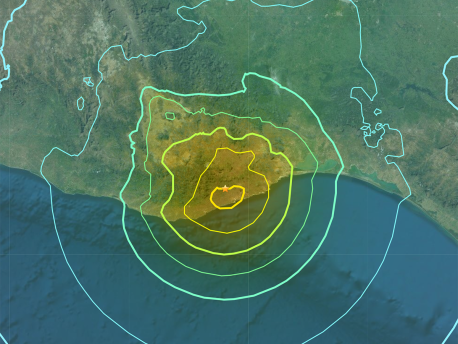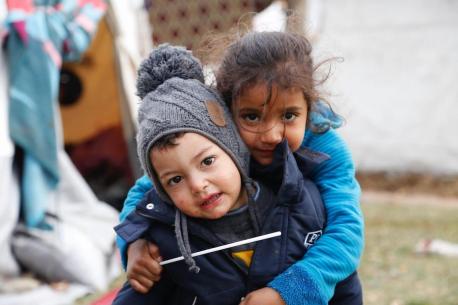
Earthquake Hits Southern Mexico
When a magnitude 7.4 quake rocked Mexico's Oaxaca State, buildings swayed more than 400 miles away in Mexico City. UNICEF is standing by, ready to help as needed.
A 7.4-magnitude earthquake hit Mexico's Oaxaca state on June 23, causing landslides and sending tremors that were felt in Guatemala. Tsunami waves more than 2 feet high crashed into Mexico's southern coast. More than 400 miles away in Mexico City, buildings shook and people ran into the streets.
The UNICEF Mexico country office immediately shared messages on social media counseling parents and caregivers on how to keep their children calm and offering safety tips. UNICEF is standing by, ready to be of further assistance as necessary.
En caso de #sismo, es importante estar cerca de niños y niñas, explicarles lo ocurrido y abrazarlos para ayudarlos a recuperar la calma. pic.twitter.com/z3vdS5q9a3
— UNICEF México (@UNICEFMexico) June 23, 2020
When twin earthquakes rocked Mexico in 2017, UNICEF was on the ground with prepositioned supplies and emergency assistance. The first, the strongest in a century to hit Mexico, was a magnitude 8.2 quake that struck off the coast of state of Chiapas, on September 7, 2017, leaving at least 90 people dead.
Just 12 days later, a magnitude 7.1 earthquake shook central Mexico, collapsing buildings and bridges in five states and in the capital and killing at least 248 people, including children who were buried when their school collapsed. The second quake occurred on the anniversary of the devastating 1985 Mexico City earthquake that left 10,000 people dead, a sobering reminder of the region's seismic vulnerability.
Whenever emergencies strike, UNICEF is at the ready. UNICEF responded to almost 300 humanitarian emergencies in 90 countries in 2018. UNICEF's Copenhagen warehouse, the world's largest humanitarian supply depot, can ship supplies anywhere in the world in less than 72 hours.
Your generous gift will help UNICEF stay ready to protect children in emergencies.
Top photo: An earthquake hit southern Mexico on June 23, 2020. © United States Geological Survey
HOW TO HELP
There are many ways to make a difference
War, famine, poverty, natural disasters — threats to the world's children keep coming. But UNICEF won't stop working to keep children healthy and safe.
UNICEF works in over 190 countries and territories — more places than any other children's organization. UNICEF has the world's largest humanitarian warehouse and, when disaster strikes, can get supplies almost anywhere within 72 hours. Constantly innovating, always advocating for a better world for children, UNICEF works to ensure that every child can grow up healthy, educated, protected and respected.
Would you like to help give all children the opportunity to reach their full potential? There are many ways to get involved.





